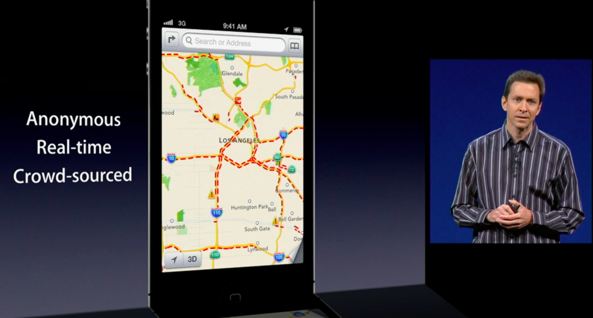Today’s a particularly bad day for Apple’s legal sharks. Just as we learned that Apple won’t be able to stop June 21 launch of Samsung’s Galaxy S III in the U.S. as it hoped it would, Reuters now reports that Apple also failed to fend off the high-profile iPhone tracking lawsuit. Though a federal judge ruled against Apple, he conspicuously let the likes of Google, AdMarval, AdMob, Flurry and Medialets off the hook…
As a result, Apple will now have to defend aganist accusations that it allowed advertisers to secretly track the activity of millions of iOS device users.
Reuters has the story:
Owners of iPhones, iPads and iPod Touches may pursue claims against Apple under two California consumer protection laws, U.S. District Judge Lucy Koh in San Jose, California, said in a decision late Tuesday. Koh oversees nationwide litigation combining 19 lawsuits.
But the judge threw out claims that Apple violated customers’ privacy rights, and also threw out claims under federal laws addressing computer fraud, wiretaps, and records disclosure.
Things aren’t looking good.
Remember the firestorm following a discovery that the iPhone collects location data from users without their consent?
The plaintiffs in their lawsuit blamed Apple for letting advertisers and analytics companies gather data on users’ addresses, genders, ages, UDIDs and even app usage habits.
Steve Jobs denied publicly that Apple had ever been tracking down its users. With an iOS firmware update issued subsequently, location tracking became an opt-in feature and location history was limited to seven days.
Jobs in an alleged email wrote “we don’t track anyone” and later called Android “a probe in your pocket”. Apple also published a detailed Q&A, saying that “Apple is now collecting anonymous traffic data to build a crowd-sourced traffic database with the goal of providing iPhone users an improved traffic service in the next couple of years”.
Indeed, during the unveiling of Apple’s in-house Maps solution at the WWDC keynote, iOS boss Scott Forstall made a point by saying that traffic incidents and other traffic data in Maps is crowd-sourced in real-time and anonymously gathered from other iOS users.
Be that as it may, Apple will now have to provide sound arguments in a nationwide litigation combining 19 lawsuits that it did not intentionally design iOS devices to allow third-parties to collect location data without users’ consent.
Thoughts?
